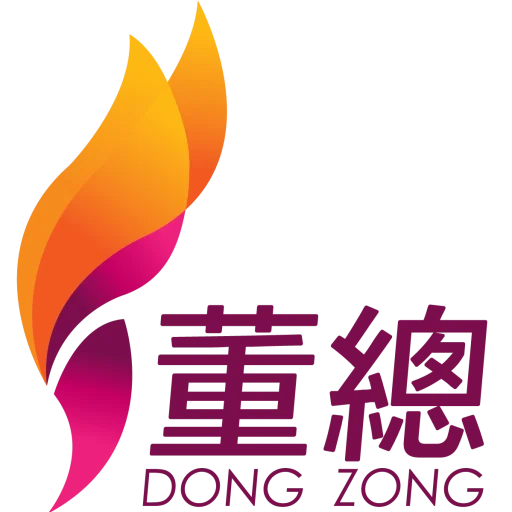Joint Statement Released by Dong Zong and Jiao Zong
August 22, 2022
1. The newspaper report on the merger of miniature-scale vernacular Chinese primary school proposed by the MOE recently had prompted Chinese communities at large to position themselves, including relevant school boards and parent teacher associations, voicing their disagreement and worries to follow suit. The president of Malaysia Chinese Association (a member party of the operating government) cum Transportation Minister Datuk Seri Wee Ka Siong also opposed the merger proposal in the cabinet; concurrently, Deputy Education Minister Datuk Mah Hang Soon similarly announced the temporarily delay of the implementation. Their response, together with the steadfast “not even one vernacular Chinese school to be delisted” position taken by Dong Jiao Zong and the Chinese community, goes unanimously.
Dong Jiao Zong believes, due to the unique inherence of the vernacular Chinese primary school, while addressing the issue the views of Chinese community must be considered, in particular school board autonomy respected and not sidelined. Dong Jiao Zong hopes that with concerted efforts from all accounts, a solution on the said issue can be reached eventually.
2. Dong Jiao Zong understands miniature-scale school exists in all streams of school owing to population migration as well as structural economics change, etc., the number of miniature-scale schools actually increases on a yearly basis. Table 1 evidently indicates the gradual progress of miniature-scale schools over the past two decades (2002-2022). Honestly, the miniature-scale school issue has been besetting for decades and diverse proposals on whether they should be retained or developed were raised by the government; take for instance, “The Cabinet Report on Educational Policy Implementation 1979”, the yearly Malaysia Five-year Development Plan and the “Education Development Plan 2001-2010” similarly raised the merger proposal and the establishment of “Centralised School Project” and day-time boarding school to tackle the problem.
In “Malaysia Education Blueprint 2013-2025”, miniature-scale school issue was touched on by the MOE and three solutions were proposed: relocation, merger or continuous operation until no intake possible. Dong Jiao Zong posits, while the systematisation of vernacular Chinese primary school construction is not in place, relocation is an existing viable approach to solve the zero-enrollment dilemma. Therefore, Dong Jiao Zong urges the MOE to publicise relevant plan on school relocation since no follow-up is noted thus far. Nonetheless, since the implementation of “Malaysia Education Blueprint 2013-2025”, some miniature-scale Chinese schools nationwide have successively received the merger proposal from the MOE. However, the relevant school boards declined the proposal. With Dong Jiao Zong’s determination to protect and safeguard these schools, they are currently operating free from merger.
Based on the understanding that vernacular Chinese primary schools are underpinned by the unitised education policy and there is no follow-up plan for the merger hitherto, Dong Jiao Zong has been opposing the proposal over the decades and persisting on the “not even one vernacular Chinese school to be delisted” position. Meanwhile, the MOE is expected to formulate and publicise a comprehensive and transparent school relocation plan, together with package like appropriation, land allocation for interested miniature-scale schools of all streams to apply as a way out.
3. Notwithstanding national, vernacular Chinese and Tamil primary schools are under the very umbrella of national education system and their status stated in all educations acts enjoying the assurance of the Constitution, under the unitised education system, vernacular Chinese primary schools are in most aspects under constraint. Take for instance, in the seventies and eighties, some vernacular Chinese primary schools were closed due to zero-enrollment, yet no new schools were constructed in Chinese populated region as wished hence ended up the decrease in number of such schools. As a last resort, the Chinese communities had to subsist those zero-enrollment schools on one hand, and proactively proceeded with school saving campaigns on the other; they were totally self-reliant while contributing efforts and generating fund; many of such schools were relocated to Chinese populated region lest the drop in total school number. This act indeed had solved the school insufficiency problem in Chinese populated areas. With concerted effort from Chinese communities, since the eighties until today, some 60 miniature-scale vernacular Chinese schools were relocated and are functioning in new region for the interest of more Chinese students.
4. Dong Jiao Zong opines it normal to close a zero-enrollment school as there is no education need for such region; however, once need arises, school needs to be constructed for education provision. Factually, in Malay society, to merge or close national primary schools stirs little dispute, since the MOE will plan and construct national primary schools for Malays congruent with demographic need. Yet to vernacular Chinese primary schools it is another story. The school merger which evokes anxiety and controversy is due to the fact that the construction of vernacular Chinese primary schools is still not systematised, even the call for relocation faces difficulties of sorts. Dong Jiao Zong thinks the MOE should not engage merger mindset while dealing with the miniature-scale vernacular Chinese primary school issue. Under the operating unitised education system, these Chinese schools do not enjoy equal treatment, let alone the many implementational impacts. Subsequently, the Chinese community is watchful towards MOE implementations while advancing gradually in bid to safeguard the sound development of the schools.
5. Dong Jiao Zong has been observing the progress of miniature-scale schools, and keeping tab on their situation through field survey and data collection. With this collected information, proposals are forwarded to the MOE for solutions on the many challenges and difficulties faced by the said schools. These edited and published materials include “The Challenges of Miniature-scale Vernacular Chinese Primary Schools”, “Surveys on Miniature-scale Vernacular Chinese Primary Schools Problems”, “Reports on the Multiple-graded Class in Miniature-scale Vernacular Chinese Primary Schools”, “Vernacular Chinese Primary School’s Construction, Relocation and Miniature-scale Chinese Primary Schools” and “The Glossary of Malaysian Vernacular Chinese Primary School’s Construction and Relocation”, etc. These materials and information not only play proactive role but also remind the Chinese communities to engage in and understand the progress of the schools.
6. The marked drop in intake of the said schools on a yearly basis—due to low birth rate of ethnic Chinese—is taken as an unavoidable reality. Coupled with the mushrooming of international and private schools, the intake for vernacular Chinese primary schools faces unprecedented challenges and competitions. In actual fact, low enrollment is not the sole issue of miniature-scale schools, many urban vernacular Chinese primary schools likewise face similar problem attributed to ageing, relocation of younger families to progressive region and urbanisation, etc. Simultaneously, the issue of vernacular Chinese primary school insufficiency in some new residential areas and Chinese populated regions emerges.
As such, aside from keeping an eye on the issues faced by vernacular Chinese primary schools, including comprehensive teaching facilities and sufficient teachers to uphold quality and enhance learning efficacy, etc., Dong Jiao Zong will explore the progress and trend of regional school population and demography with all state members, Chinese school teacher associations and vernacular Chinese primary school development working committee, including cultural and educational organisations to redesign sustainable development plan aligns with needs. It is to ensure their progress be on par with the times, competitive and the most sought-after for Chinese community.
| Year |
2002 |
2022 |
| Stream |
National Primary |
Vernacular Chinese |
Vernacular Tamil |
National Primary |
Vernacular Chinese |
Vernacular
Tamil |
| School in Total |
5564 |
1285 |
527 |
5868 |
1302 |
528 |
| Miniature-scale School in Total |
1547 |
502 |
333 |
2034 |
616 |
367 |
| Miniature-scale School in Percentage |
27.80% |
39.06% |
63.19% |
34.66% |
47.31% |
69.51% |

